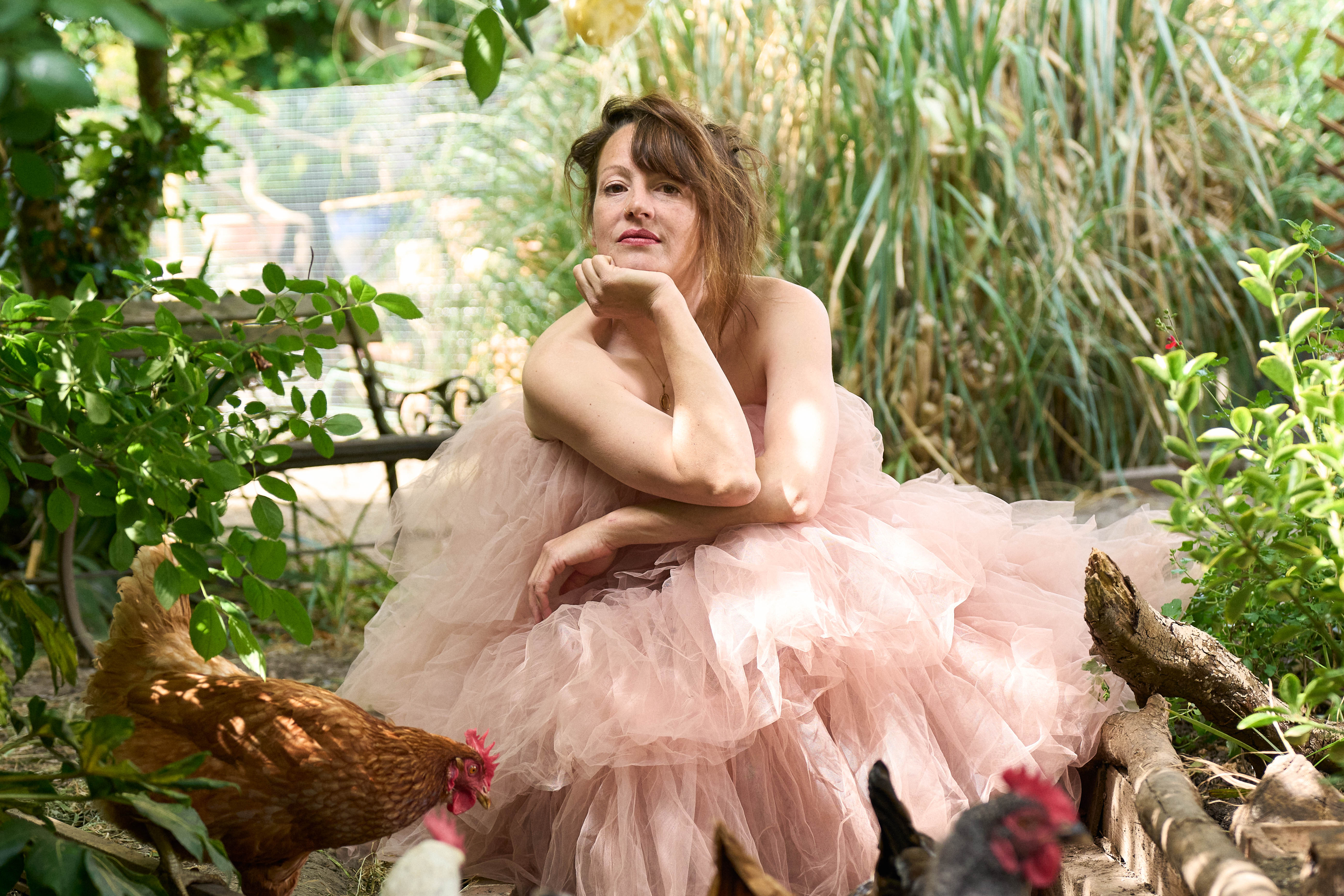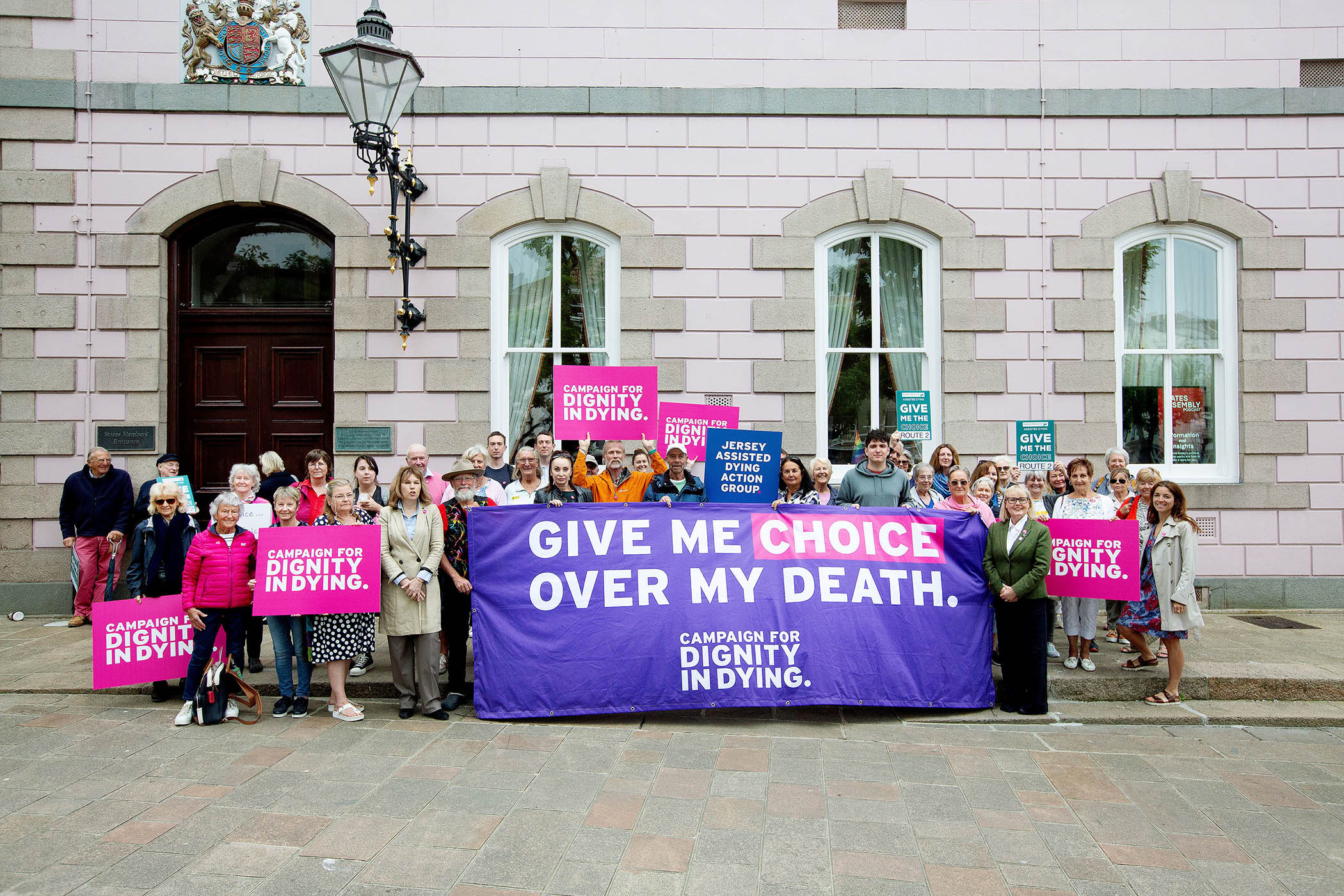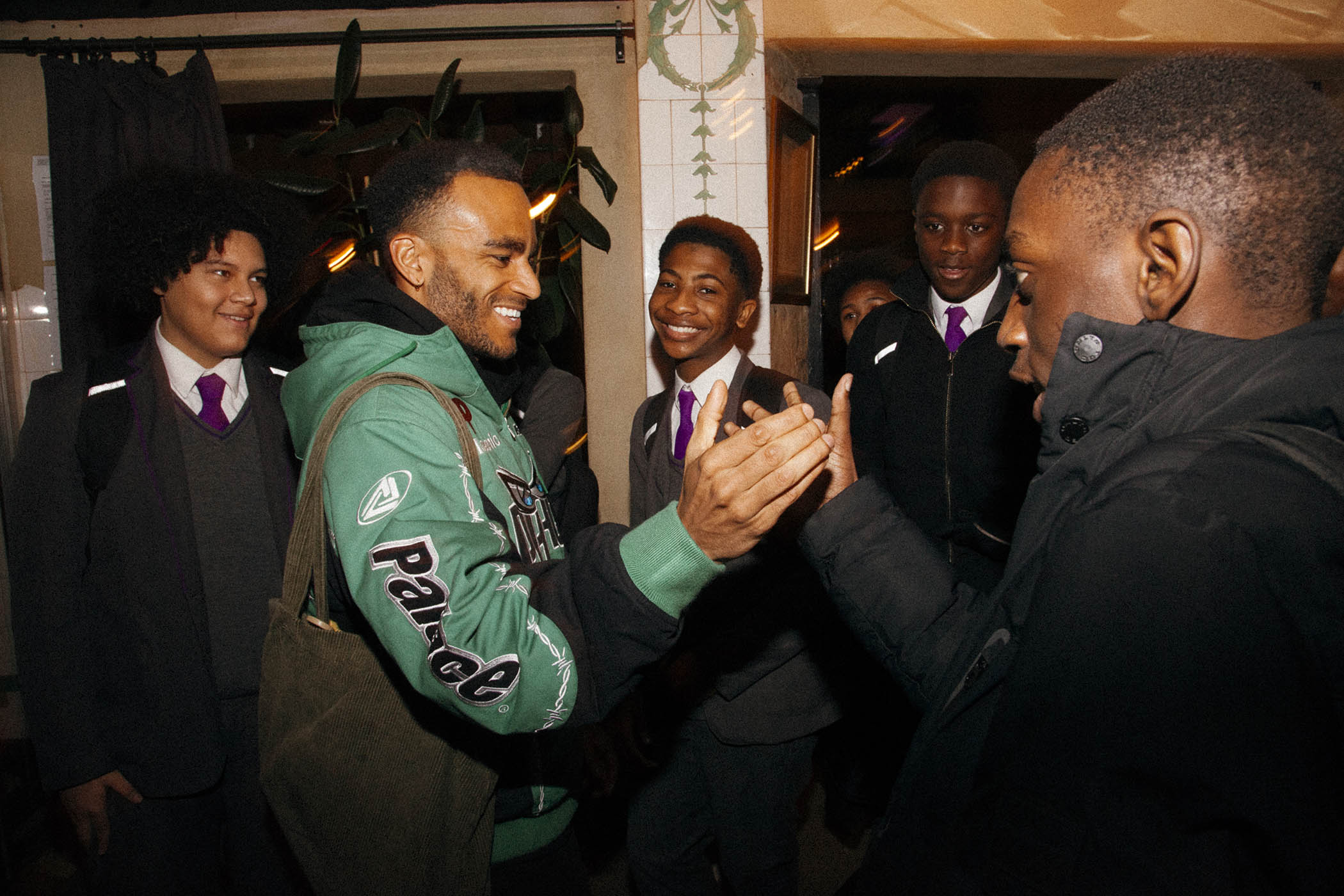It’s morning, so I’m making coffee, which means forgetting to put in coffee grounds, forgetting to add water, or forgetting to turn on the hob. I talk myself through it. Today: success. Maybe there’s actually nothing wrong.
Dawn chorus clucks from our rescue hens squawk out the next reminder of the day. My senses, increasingly, are a memory-crutch. Sound, particularly. Smell helps, too. Which reminds me – have I turned the stove off? (The toxic fumes of a melting lunchbox alerted me yesterday that I had not.)
I call the kids for breakfast. Instead of “crumpets” I randomly say “seatbelt”. They laugh, I laugh. It’s normal, it’s fine. We brush our teeth, me checking the label on the toothbrush pot to remember which colour is mine. I dress, loudly belting out Hamilton. The kids roll their eyes. They don’t know it’s one of my memory games.
I feed the chickens. I walk the dog. More brain-training – making myself remember the name of the occupant of each house I pass. I’ve lived here for years. The inhabitants are friends. But names are joining the growing inventory of information I can’t retain. On a good day, I recall their dogs’ names. Today is not a good day.
Today is my memory-assessment appointment, which I’ve remembered by writing it in four places. I’m trying to be practical about this appointment. Nothing to worry about. Basically a sight test for my brain. Except I wouldn’t panic about the opticians. I wouldn’t feel – as I feel, pushing the hospital door marked Neurology – that the essence of who I am is about to be snatched.
I am my memory. I am words. I am brain. Of all the things that could go wrong, why this? It seems unfair. I’m not even 40. The world is still for getting, not forgetting. Not yet.
The consultant calls my name. She apologises for her temporary office. I hope she means an office for diagnosing temporary things. She opens a test book on the desk between us, as I spew out an adrenaline-fuelled caveat:
“Before we start, I guess it’s marked on averages, and I just need you to know that what might be average is not average for me. I mean, words are my thing, so even if I mess up a little bit, for other people it might be normal, but for me that’s really bad. So the scores might show I’m fine, but I need you to know I’m not.”
I’ve barely told anyone about my problematic memory. Few people know about me even being ill. I mask it, hide it, make light of it. Because, really, I’m fine. I have to keep saying that. Because I don’t know how to live with the fact that I’m not. For all of us, in some way, the body holds shame. A lot of us – too many of us – try to push that way.
I’ve spent my whole life hating my body. Taming it, punishing it, bending it to my will. I ignored it into non-existence to become all mind. A mind that kept me safe, and strong. Until now.
Newsletters
Choose the newsletters you want to receive
View more
For information about how The Observer protects your data, read our Privacy Policy
A few years ago, I had my first seizure. When I came to, confused in a hospital, my first words to the doctor were I’m sorry, I’m fine. But this body I’d been silencing was not fine. It was fighting to scream and shout. It sent me spasaming into another seizure. I woke up in an MRI tunnel.
Look at me, my brain said. I’m here.
I was diagnosed with temporal lobe epilepsy. The neurologist said I’d had it all my life. There are more than 30 types of seizure – not just the big shaky ones in films. All those years of ignoring my body had escalated it. Years of explosions in my brain. A singed and sizzled hippocampus, which the neurologist likened to a “library” – “and in your case, the librarian’s on strike”.
So information retrieval is damaged or disorganised. So I struggle with language and words. So I can’t always make coffee. So, I’m here.
“OK, Holly. I’m going to read out 20 words. When I’m finished you will say them back to me in order.” She begins: “Market; Package; Bubble… sorry Holly, you can’t do that.” I don’t know what she means. I’m just trying to concentrate. “You’re writing the words with your finger on your palm.” It’s instinctive. A natural strategy. Without it, I don’t stand a chance. I struggle on clumsily. At one point, my mind shows me brown leather and a big letter S.
“Satchel?” I try. Not quite – Saddle.
For 90 minutes. I fumble and stumble. Cognitive Crufts and I’m the untrained mutt. I keep apologising, as if it’s a moral responsibility to remember shapes and recreate how they collide; to recall how many firefighters came to a hotel blaze in a story she reads.
I lay my head on the table. I go to the bathroom and cry.
I’m not even 40. The world is still for getting, not forgetting. Not yet
I’m not even 40. The world is still for getting, not forgetting. Not yet
When I was little, I used to get so travel-sick. The adults explained it was like an argument between my brain and my body. Ears and eyes saying: We’re moving! Muscles saying: No we’re not! And the brain refereeing these conflicting signals. These tests make me travel-sick, for the same reason. The doctors see my brain as my body. But for me, it will always be my mind. If my brain goes, I go. Without memory and words, what is left?
The mantra on car trips, was just keep looking straight ahead. I dry my eyes and leave hospital with my head up. Looking straight ahead. On the train home, I write about the appointment in my journal. Capture it. Preserve it. So I won’t forget. I’ve kept diaries since childhood. I’m grateful now for this premature safekeeping; 30 years of diaries, an external hard drive for my brain. But recently, the imperative to record absolutely everything has become vital and urgent. I make myself write lists, as long as I can – every smell I remember, every object, every sound, every house. I’m cloning myself on to the page.
I need to record all this, because this is what makes me. And if it goes, then who will I be? Epilepsy comes from the verb to seize, to take. I imagine my seizures seizing my entire sense of self.
The results of the memory tests destroy me. The first time I’ve failed anything. Not now. Not this. For each task, I am “borderline” or “below average”. “Extremely low average” for one task. I don’t tell anyone. I feel ashamed. I run a bath. I forget that I’m running it. Water floods the floor.
I don’t know what the future holds for my memory. The cause could be epilepsy; it could also be the drugs. And there’ll be other factors, too, down the line. Memory is something none of us can hold on to reliably – whether through illness, ageing, menopause, motherhood, trauma, neurodiversity – it will change.
Let’s normalise messy memory. Move away from seeing it as weakness or shame. A memory that goes wrong sometimes shouldn’t make you feel vulnerable, just as wearing glasses for short-sightedness does not. If I forget your name, don’t be offended. It doesn’t mean I’ve forgotten your youness, the feeling you bring.
At a neurological level, memory is a system of connections. I have found a system of connections outside this, beyond. It’s called meaning. And my God I’ve found meaning. Through struggling, through writing, through sharing it with others, and finding I’m far from alone. Meaning is the residue of memory. It’s the essence of significance that facticity leaves behind. After all – the experiences that first make us as infants occur before we are old enough for our brains to cement them down. It’s like eating at a restaurant and remembering years later it was wonderful, without recalling what we ate.
Memory is individual; meaning-making is collective. The route to forming identities, bonds, community. Not just around the big stuff – politics, nationhoods. But about the tiny, beautiful stuff, too – an object, scent, tree.
I was wrong. I am not my memories. I am the sum of the meaning I have derived from them over the years. So it’s OK if my memory fails me. The essence, the feeling, the meaning, remains. Memory is bricks, but meaning is the mortar. Does the night sky hold less awe, if we don’t know how to name stars?
Holly Dawson is the author of All of Us Atoms, published by Canongate at £18.99
Photograph by Hayley Benoit


